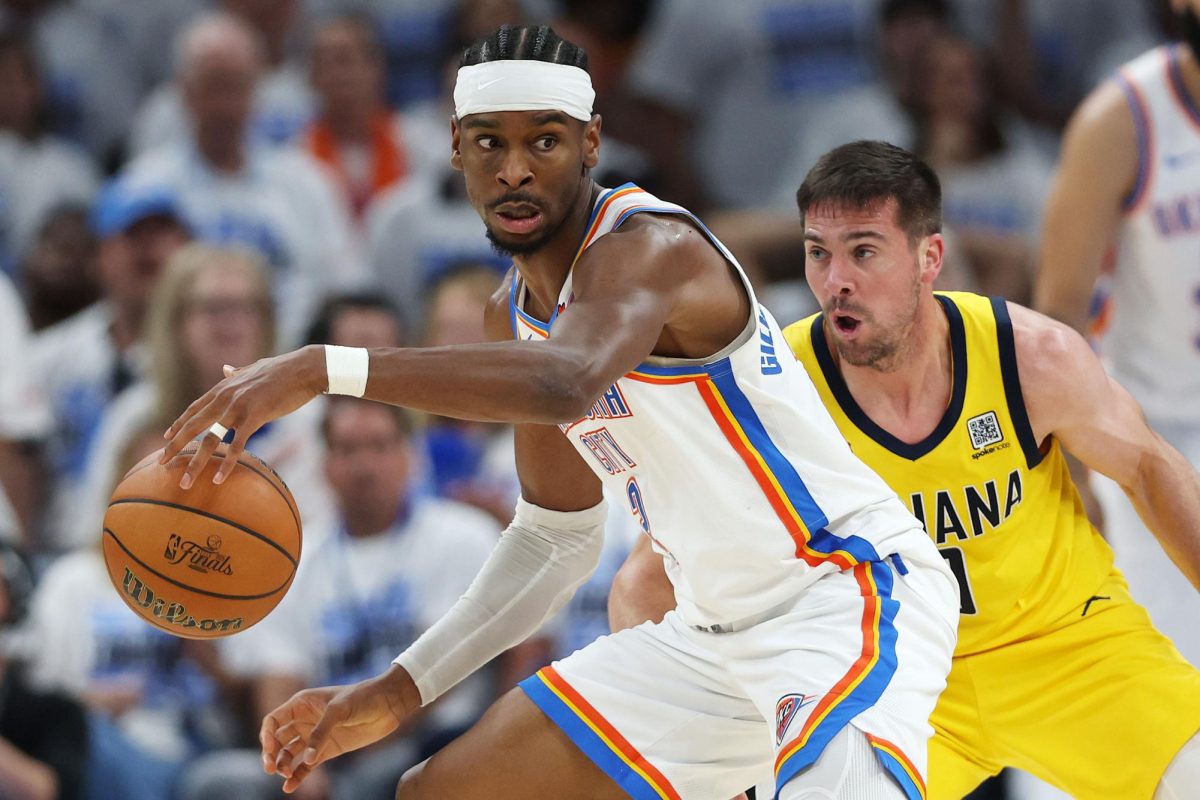The first notification came in at 12:48 p.m., then four more in quick succession: “Kobe Bryant dies in helicopter crash.” My stomach dropped through the floor. I couldn’t read updates fast enough.

I’m not a Lakers fan. In fact, most people aren’t. But some players escape team limits.
In Kobe Bryant’s final game in the NBA, he dropped 60 points against the Utah Jazz. The stadium was bursting with Bryant jerseys. Fans chanted his name. He was celestial, practically floating above the ground.
Kobe’s on-court legacy is indisputable. He’s one of the best to ever play the game.
He spent his entire 20-year career with the Lakers and was the league’s No. 3 all-time scorer, until LeBron James passed him on Jan. 25. He led his team to five NBA championships and was an 18-time All-Star.
At 34, he became the youngest player in league history to reach 30,000 career points. He was the Lakers’ leading franchise scorer.
And to top off his illustrious career, he won an Academy Award in 2018 for his film “Dear Basketball.”
Off the court, Kobe’s legacy is more complicated. In 2003, he was accused of sexual assault by a 19-year-old hotel employee. The charges were dropped after the plaintiff decided not to testify in court and a civil suit was settled out of court.
Bryant, who was then 25 with a 5-month-old daughter, said the sex was consensual. But in 2005, during a public apology that was part of the civil settlement, he said, “I now understand how she feels that she did not consent to this encounter.”
Once charges were dropped, Kobe’s reputation was restored. His sponsors renewed contracts; his jersey sales picked back up.
But in the wake of his death, the allegation bubbled to the surface of mainstream conversation once again. Twitter became the stage for thousands to play judge and jury. On each post and tweet, you could count on at least one comment about the accusation.
Grief over Kobe’s death doesn’t take away from empathy for his accuser. But the conversation around his alleged assault is misdirected.
He’s no longer here to be held responsible for what he might have done; the ones left to carry his name, his wife and daughters, deserve the respect of focus on his successes.
Kobe’s off-court reputation wasn’t all subversive. Nationally and worldwide, Bryant was a symbol of everything American society said black men were not and could not be: entrepreneurial, fluent in other languages, successful and happy.
Kobe helped redefine what it meant to be a black man in America. He rose above stereotypes through his athleticism, his mentorship, his parenting and his work.
All fans were brokenhearted, but black fans especially were devastated. There was a sense of communal loss.
The fact Kobe’s 13-year-old daughter Gianna was also killed in the crash only compounded the grief. Gigi was a basketball player and on track to be a UCONN Husky; she had a chance to go on to the WNBA.
Upon his retirement in 2016, Kobe entered the second act of his life as an activist, producer and children’s book author. He went to Gigi’s basketball games and avidly coached her. He also encouraged and mentored thousands of youth over the years.
The tragedy in Calabasas struck a chord with every spectator. Besides Kobe and Gigi, the other fatalities include baseball coach John Altobelli, his wife Keri, and their daughter Alyssa; mother and daughter Sarah and Payton Chester; basketball coach Christina Mauser; and pilot Ara Zobayan.
Children are left without parents, and parents without children. Cities and colleges mourn. Thousands of fans gathered at the Staples Center to pay respects. Everyone, basketball fans and non-fans alike, was talking about Kobe.
Kobe’s story isn’t simple. Here lies the NBA’s fourth-best scorer; a man who loved his daughters fiercely; a man who once called a referee a f*ggot, then partnered with GLAAD on a campaign to end homophobia in the NBA; the first African American to win the Academy Award for Best Animated Short Film; an alleged rapist; a man who founded a non-profit organization that provides comprehensive after-school programs for underprivileged children; a man in a 19-year marriage that survived affairs, accusations and turbulence; a man in a marriage that must have also been full of generosity and love.
Kobe’s legacy is golden and frayed. Next year, he’ll be inducted into the Hall of Fame. His three daughters and wife will have to forge a path without him. His teams will have to pick up where they left off; Kobe burned a hole in the city of Los Angeles.
The day after his death, the Utah Jazz played against the Houston Rockets. To start the game, the Jazz held the ball for 24 seconds in Kobe’s honor. Fans chanted his name. He was celestial. He was floating above the ground.


















